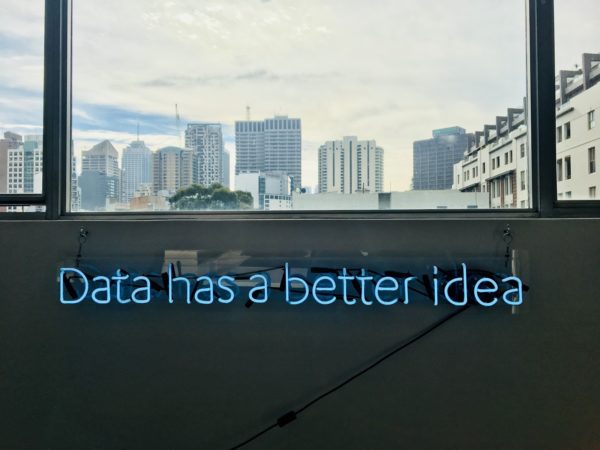Managing Extreme Uncertainty the Startup Way

Even in times of hardship, uncertainty is another word for possibility. As a nation, we’ve made it through other crises and found reasons for hope. The 2008 financial crisis reset on our financial system. September 11th, 2001 changed the geopolitical balance of power and our responsibilities on the world stage. The dot-com crash brought a new kind of internet that connected the global economy in a way that is still transforming how we live and work.
But arguably those events are different from our current threat. In a short time COVID-19 has appeared in almost every corner of the world and facet of our lives, creating an environment steeped in VUCA – volatility, uncertainty, complexity, and ambiguity.
In our current situation, there are many more questions than answers, more unknowns than knowns. To each question or unknown I challenge you to be the thinker, doer, and innovator — applying a founder mindset that allows you to break down uncertainty into manageable chunks as we reshape our daily work.

Let’s Start With the Questions
Today, we’re all standing on the same ground. The known has become unknown, and a flood of new information and data is coming in at every moment. It isn’t just new data about old patterns and habits, it is new patterns and habits, being created in real time, right in front of our eyes.
How long will social distancing last, and how might it permanently impact the way we travel? How do we organize events and hold meetings? What implications are there for the patchwork of approaches across the world, as well as the different timelines for the global threat to play out? How will the healthcare industry evolve to meet the surge in sick patients?
Just as airlines changed radically after 911, the healthcare industry is already being reimagined. Regulations are being eased to allow a lot of routine care to be conducted online and over the phone. Tools to make this happen have existed for many years, but when a disruption of this magnitude occurs, long-standing barriers to innovation are removed and sometimes not put back into place.
The tools and methods used to manage remote work will soon be more widely adopted, and if we’ve learned anything from the last decade, it’s how once people adopt an easier and more effective technology there may be resistance to go back. On the other hand, when they do resume, face-to-face meetings might become even more productive and efficient.
There are many other questions waiting in the wings with implications that will ripple out to transform communities, small businesses, and individuals. Will factories who retrofitted to produce medical equipment and other supplies develop new product lines and business models? Who will fill the needs they met before?
What supply lines are being redrawn, and how might that impact everything from what we eat to what we wear? Speaking of clothes, in major cities retailers have already removed merchandise from their display windows to make it available through other channels.
The choices they make, and what they learn from both their successes and failures will determine what industries are able to transform, and which might go extinct. How will businesses and people adapt to survive? Although we will return to a new normal in the weeks or months to come, it will not be the old normal.

Times of Uncertainty Are Also Times of Great Change and Opportunity
How can organizations and businesses act in the face of such an event as we face now, described as an economic impact equal to every state in the country (and every country in the world) dealing with a hurricane that lasts for weeks and weeks?
It creates a strange paradox, while everything is changing, everything is also slowing down, a kind of pause before the big reset. This moment is a critical one for businesses to prepare for what will come after. Businesses can use this pause to get ready for the big shift that is coming, and for a prolonged environment of uncertainty, innovation, and change.
This is the environment where startups actually thrive, with their focus on process, data, adaptability, and the ability to learn quickly. This is the core concept behind the Lean Startup methodology. Eric Ries defined a startup as a human institution designed to deliver a new product or service under conditions of extreme uncertainty.
Startups do this by breaking uncertainty down into manageable and testable hypotheses, and then learning and adapting quickly. This process, the build-measure-learn loop, is at the core of the methodology and can help organizations of any size master uncertainty quickly.
Because some degree of uncertainty will be the new normal for some time, organizations of the near future will probably resemble a startup ecosystem more than the old hierarchical corporate model. Click To TweetCompanies can start now to create a startup culture within their organization and put into place practices that will help them survive and thrive.
Start Driving Innovation
Just as people in their individual lives are slowing down, reflecting, and making changes, this is a great time for organizations to establish new habits and practices in the workplace. In the coming weeks and months we will continue to share steps that will drive innovation. Here are seven.
1. Bring innovation inside
Innovation labs and innovation projects located outside the core business might have been a good way to innovate when things were more stable, but uncertain conditions make even the core business a risky proposition. Now your core business is operating in the big unknown. Lean Startup tools and methods can de-risk and protect the core business, helping operations maintain mission-business functions so you can survive to fight another day.
2. Find and empower founders and innovators
Every company has people with innovation skills and an entrepreneurial mindset, and now is the time to find and empower these individuals to lead. An entrepreneurial or founder mindset, as we call it, is about taking ownership and being equipped, trusted, and accountable to learn and act quickly.
3. Build a strong tribe culture
We can’t be physically together right now, but there is no reason your tribe can’t grow closer. A common existential crisis like the COVID-19 tends to break down polarization and create unity. When uncertainty is prevalent, people are also more willing to hear different perspectives. This may be a watershed moment for diverse ideas.
4. Make communication a priority
Ongoing, frequent communication is critical to maintaining a strong and cohesive culture in conditions of uncertainty. As new data comes in and reshapes our assumptions, stakeholders should align frequently. This becomes a continuous loop that reinforces unity while keeping everyone current so energy and resources are not wasted.
5. Get methodical and data-driven
What are your assumptions and how will you know if they are true? Mapping your assumptions and testing them is critical, and the better you get at this the faster you can go. Since speed is the name of the game now, learning to rely on data and testing your assumptions is probably the most critical survival skill you can hone to be prepared for what’s coming next.
6. Learn through doing
Get familiar with the tools and methods for rapid ideation. That data will be plentiful and while this isn’t a great time for big moon shots — prototyping, testing, and learning will prepare you for the new world and yield tomorrow’s innovations.
7. Set new priorities
Getting clear on what is mission critical then reallocating resources and people is the first step. Evaluating existing and new products on feasibility, based on new conditions and projections will save valuable resources in the long run. Operations cannot run on auto-pilot, they have to be evaluated and reevaluated closely. Running projects like startups can help you make better decisions on what to prioritize and what to park.

COVID-19 and the related economic shock isn’t a brief pause that will temporarily suspend things, but a disruption so large that probably no one can completely comprehend it. Although it feels overwhelming, a framework exists for breaking uncertainty down into manageable chunks.
Shaping the post-pandemic order will be a massive collaboration of thinkers, doers, innovators, and creators working collaboratively. Running your organization like an ecosystem of startups can help you innovate in this new environment. The Lean Startup methodology is designed to help organizations navigate extreme uncertainty and to empower their leaders and teams with a founder mindset.
